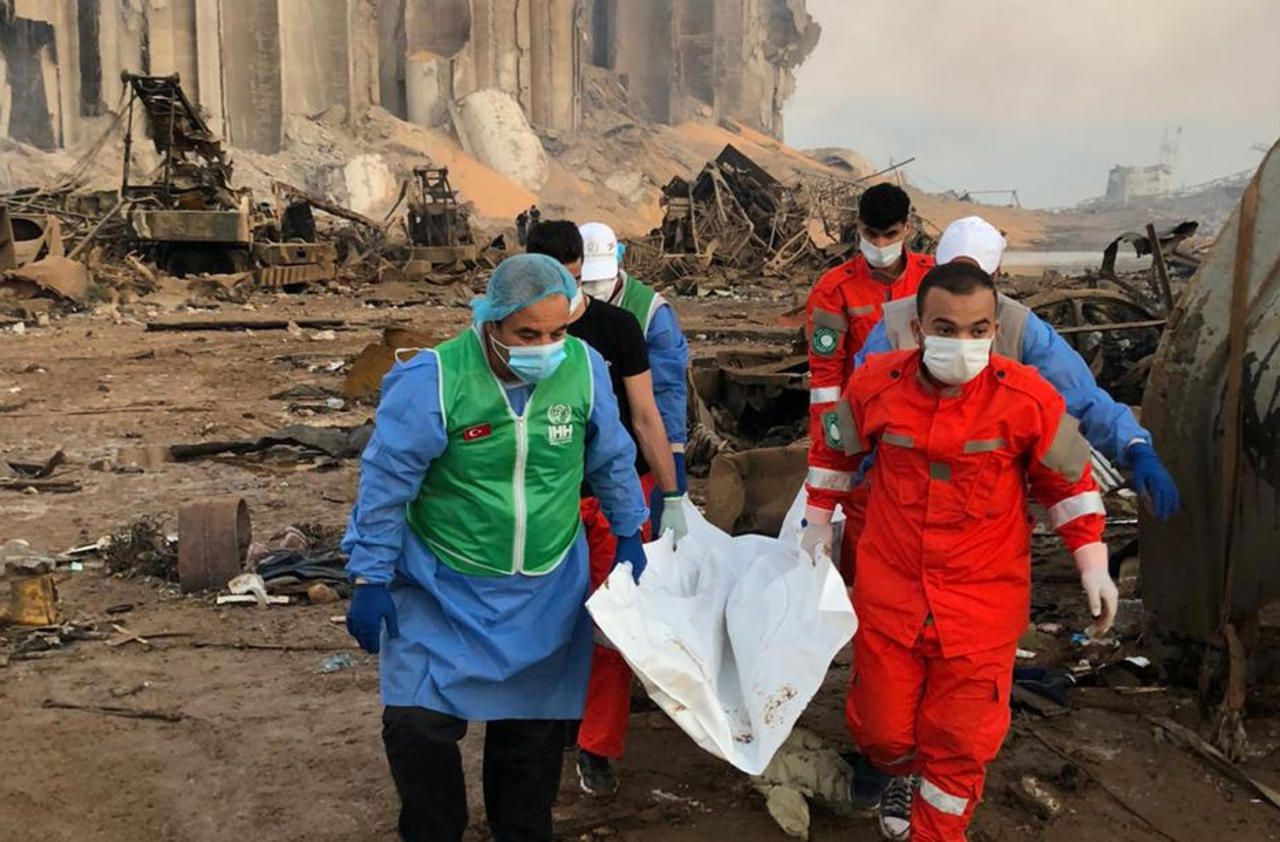Ahlam unrolls the portraits posted on the Instagram account Locating victims (locating victims). She stops, thoughtful, in front of the photo of a young woman in her thirties. "She's my music teacher, she hasn't given any sign of life since Tuesday afternoon," she said, pursing her lip. In the aftermath of the double explosion that hit Beirut, the Lebanese discovered, Wednesday August 5, the extent of the disaster that befell their capital. The toll is heavy, the destruction is considerable. “The number of missing people is higher than the number of dead,” said Health Minister Hamad Hassan. The balance sheet, still provisional, reported Wednesday at least 135 people dead and some 5,000 others injured.
No one knows the exact number of those from whom we have no news. They would be dozens, maybe hundreds. A large number of soldiers and firefighters, who were fighting the fire that broke out on Tuesday in the enclosure of the port before the explosion, no longer answer the call. "We are going to search the ashes of the hangars inch by inch to find them," swears Maher, a Civil Defense volunteer, who lost several of his comrades in the disaster.
Like an earthquake
The ruins of the port are still smoking. The site, once teeming with people, looks like a deserted battlefield. Hangars, containers, administrative buildings have been reduced to dust. Even the cranes seem to have been bent under the power of the explosion of 2,700 tons of ammonium nitrate, heard as far as Cyprus, 200 kilometers away.
VIDEO. Beirut: the explosion damage seen from the sky
The neighborhoods around the port are as if struck by an earthquake. The streets are littered with glass, torn storefronts, furniture or false ceilings that have landed on the pavement. The facades of the buildings are gutted, the cars crushed by concrete blocks fallen from the terraces.
Soldiers stationed at the entrance to the streets are forbidding access, officially to facilitate relief operations, but also to prevent looting and burglaries. "The blast of the explosion tore the iron curtain of my store, you could enter it like a mill, worries Amer, a seller of electronic gadgets and cell phones. I am going to take an inventory but I do not have the impression that someone has helped themselves ”.
"I found, 30 years later, the reflexes of war"
The Saint-Georges hospital, one of the most important in the capital, in the Ashrafié district, is out of service. Its buildings were seriously damaged and visitors and medical staff died in the blast. "Four hospitals are no longer operational in Beirut," said the Minister of Health. Two rural health facilities immediately provided by Qatar began to be installed on Wednesday to ease the burden on local facilities, saturated by the high number of injured.
Newsletter - Most of the news
Every morning, the news seen by Le ParisienI'm registering
Your email address is collected by Le Parisien to enable you to receive our news and commercial offers. Learn more
VIDEO. Beirut hospitals saturated after double explosion
The damage in the city center, where the Parliament is located and in the Ashrafie district, which overlooks the port, is considerable. Armed with shovels and brooms, the residents are busy picking up the debris covering the asphalt. “Thirty years later, I rediscovered the reflexes of war, when it was necessary to carry out a cleaning session of the roadway after each battle, remembers Abdallah, a local grocer. This is a bad omen ”.
The governor of Beirut Marwan Abboud said that 300,000 inhabitants of his city, out of the two million that it counts, were now homeless. The authorities have not yet made any plan to deal with them. Convents and other institutions offered shelter to those who no longer had it. “It is a laudable initiative, but insufficient because their reception capacities are limited. It is up to the government to take care of this file, ”observes Hassan Abdel Hamid, a teacher.
Avoid a shortage of bread
Faced with a series of economic, financial, political and health crises, the Lebanese government must fight on all fronts with modest means. Its main concern seems to be to avoid a shortage of bread and a surge in the price of this staple after the destruction of the silos at the port. "The strategic wheat reserve has gone up in smoke," said Abou Georges, a baker. If the importation of new quantities does not take place quickly, we will run out of flour in a few short weeks ”.
To delay this deadline, the authorities have decided to take control of all the wheat remaining in Lebanon and limit its sale to bakers only. Under enormous pressure, many Lebanese want to remain positive despite everything. Thousands of people took part in the blood donation campaign in solidarity with the victims of the disaster.
Others, however, fail to overcome their resentment with politicians. Angry young people attacked former Prime Minister Saad Hariri on Wednesday as he wanted to visit the scene of the accident and the affected neighborhoods. “They are all responsible for our misfortunes. Let them go, or it is we who will leave this country, ”says bitterly a young demonstrator, her face covered with a mask in the colors of the Lebanese flag.

